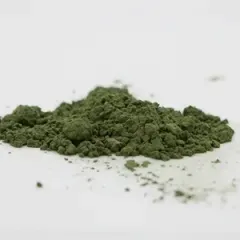Technical Parameters of Powdered Immediate Salt Silicate (CAS 1344-09-8)
(Technical Parameters of Powdered Instant Sodium Silicate (CAS 1344-09-8))
Keep in mind: We can likewise tailor sodium silicate powder with moduli of 2.45, 2.5, and 3.4 according to your demands.
Our Variety Of Salt Silicate Moduli
We provide powdered split second salt silicate with moduli varying from 2.0 to 3.3. In addition, we can tailor sodium silicate powder with moduli of 2.45, 2.5, and 3.4 to meet your particular demands.
Introduction
With a growing worldwide emphasis on environmental management and lasting development, salt silicate, additionally known as water glass or soluble glass, has garnered significant interest in different industries owing to its diverse uses. This inorganic substance functions as a vital element in building, papermaking, and cleaning agent manufacturing. Recently, conventional phosphorus-based cleaning agent additives such as salt tripolyphosphate (STPP) have actually been gradually gotten rid of due to their unfavorable effects on marine ecological communities. In this context, the requirement for effective and ecologically secure alternatives has become immediate. Salt silicate, with its unique attributes, has entered the limelight as a promising option.
Market Opportunities
1. Worldwide Demand Patterns
The global production of focused artificial detergents has actually seen steady growth, especially with the increasing share of ultra-concentrated powders. It is estimated that at least 230,000 tons of salt silicate were called for in 2000 alone to fulfill market demand. Provided the existing restricted worldwide supply, there is a considerable void between supply and demand, indicating considerable potential for growth. As customers’ demand for premium and environment-friendly items increases, the market for salt silicate is anticipated to expand even more.
2. International Competitive Landscape
Compared to comparable products created globally, Chinese-manufactured sodium silicate often offers a much more competitive cost and comparable and even remarkable top quality. For example, the FOB rate of salt silicate in the USA is roughly $51.15 per 100 pounds, while prices in Europe are even greater. This cost benefit placements Chinese manufacturers highly in the worldwide market. By continually introducing and enhancing item quality, Chinese makers have the potential to record a larger share of the global market.
Review of Sodium Silicate
Salt silicate is a compound formed from silicon dioxide (SiO ₂) and salt oxide (Na ₂ O), normally represented by the formula Na ₂ O · nSiO ₂, where n varies depending on the certain kind. It is defined by great solubility, a high pH level, and exceptional cleansing residential properties, making it an optimal cleaning agent additive. Beyond its use in detergents, sodium silicate is commonly made use of in the construction market, such as in waterproofing products and sealers. In the paper sector, it boosts the toughness and level of smoothness of paper. Additionally, it locates applications in fabric dyeing, oil removal, and other fields.
Production Refine
1. Raw Material Prep work: The initial action involves choosing suitable raw materials, consisting of silica sand or soluble glass, together with caustic soda.
2. Dissolution Stage: The raw products are blended and warmed to an appropriate temperature to promote dissolution, ensuring extensive blending of all components.
3. Crystallization Control: Details conditions are managed to promote the formation of preferred crystal frameworks in the solution. Temperature and stress parameters should be exactly taken care of throughout this phase.
4. Filtering and Filtration: To make certain the purity of the final salt silicate item, a plate and framework filter press is employed to remove undesirable dampness and pollutants.
5. Drying and Forming: Spray drying out modern technology is utilized to minimize the moisture content better, resulting in a powder kind that is very easy to shop and transport.
Cost-Benefit Evaluation
From an economic perspective, the production of salt silicate presents clear cost advantages. For a plant with an annual capacity of 5,000 loads, the expense breakdown is as follows:
1. Variable Expenses: Approximately $346.71 per ton, including resources (silica sand/soluble glass and caustic soda), power consumption (power and fuel), and labor prices.
2. Fixed Expenses: Around $141,400 each year, covering depreciation of fixed properties, upkeep, management charges, lending passion, and various other costs.
3. Complete Expenses: The consolidated total expense is approximated at $385.71 per load.
4. Sales Profits: With an estimated selling price of $642.86 per bunch, the profit margin per heap would certainly be around $257.15.
( sodium silicate)
5. Economic Perks: The project can create a yearly earnings of around $3.21 million, contributing roughly $1.29 million in tax obligation profits.
This cost-benefit evaluation indicates that salt silicate not just supplies significant technical advantages but is likewise highly economically sensible. For manufacturing business, investing in the production and promo of salt silicate can produce significant financial returns while boosting their company social obligation picture.
Final thought
In recap, sodium silicate, with its premium technical efficiency and low production expenses, holds terrific prospective as a substitute for standard phosphorus-based ingredients. In light of increasingly stringent environmental laws and the expanding consumer need for premium, environment-friendly items, accelerating the research study, growth, and commercialization of salt silicate will certainly be an essential driver in the makeover of the worldwide cleaning agent sector. For financiers, entering this field not just adds to company social responsibility however likewise assures attractive financial returns and societal advantages. With ongoing technical advancements and an increasing market, the potential uses salt silicate are considerable and merit additional examination and development by sector stakeholders and study bodies.
TRUNNANO is a supplier of Sodium Silicate Materials with over 12 years of experience in nano-building energy conservation and nanotechnology development. It accepts payment via Credit Card, T/T, West Union and Paypal. Trunnano will ship the goods to customers overseas through FedEx, DHL, by air, or by sea. If you want to know more about sodium silicate in liquid soap, please feel free to contact us and send an inquiry(sales5@nanotrun.com).
All articles and pictures are from the Internet. If there are any copyright issues, please contact us in time to delete.
Inquiry us



